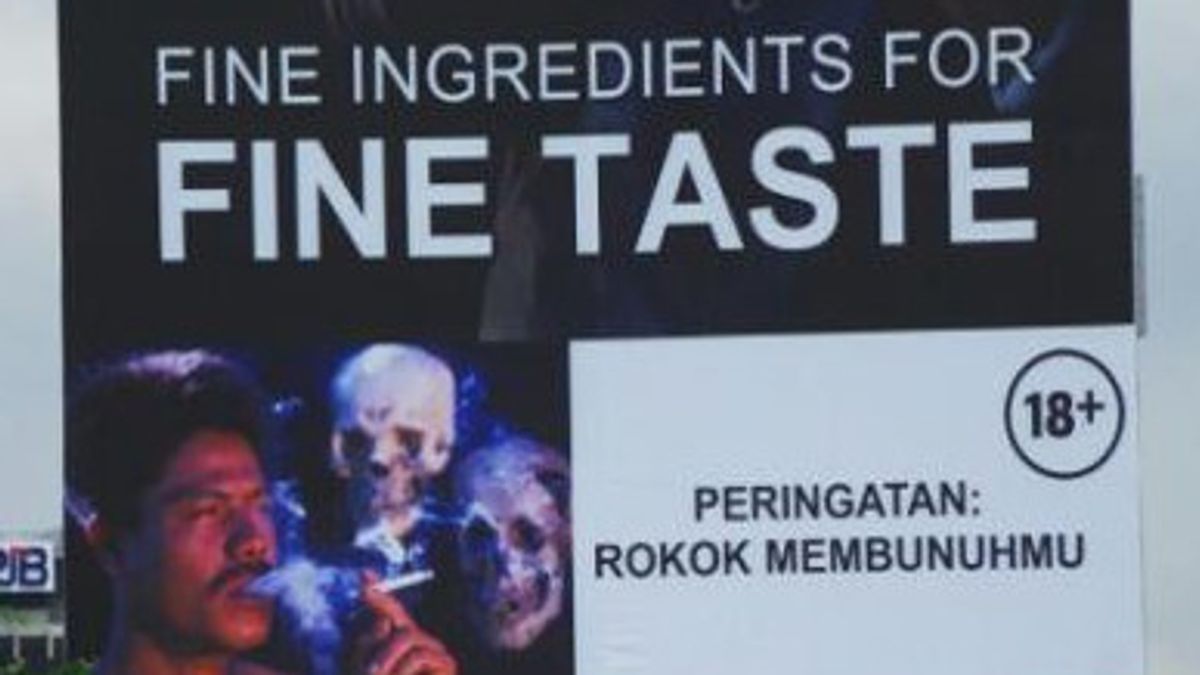JAKARTA - Yesterday, February 1, Finance Minister Sri Mulyani raised cigarette excise rates to 12.5 percent. The government admits its aim is to reduce the number of smokers among children and women. Even though many parties say this step is not right to reduce the number of smokers. The only rational reason for this policy is: increasing state revenue. Never mind, why make it up anyway.
Sri Mulyani explained that the aspect to be considered in this year's cigarette excise policy is controlling consumption according to the National Medium-Term Development Plan (RPJMN). In addition, it is also related to labor issues, tobacco farmers, illegal cigarettes, and state revenues.
"The government hopes to reduce the prevalence of smoking in children and women. The prevalence of smoking is recorded in general to drop from 33.8 percent to 33.2 percent in 2021," said Sri Mulyani on Thursday, December 10, 2020.
Meanwhile, said Sri Mulyani, for children 10-18 years old, efforts would be made to reduce them according to the RPJMN target. Meanwhile, the target is to reduce the prevalence level from 9.1 percent to 8.7 percent in 2024. The question is, is it effective?
Smoking behavior
If the hope of raising cigarette excise is to reduce the number of smokers, State Islamic University (UIN) sociologist Syarif Hidayatullah, Tantan Hermansyah, does not see it as effective. According to Tantan, there is no relationship between people who smoke and an increase in cigarette prices.
Smoking behavior, said Tantan, is produced because there is an addiction or dependence from a person on a product. This behavior is getting thicker because it symbolizes something.
In denotative smoking behavior shows maturity and courage. Meanwhile, connotatively, Tantan argues that smoking symbolizes association, relations and integration.
"Based on the two semiotic symptoms, is smoking related to price? The answer is clearly no. So it can be concluded that no matter how expensive cigarettes are, they will not affect the decline in smoking," said Tantan to VOI.

According to Tantan, one of the most effective ways to reduce the number of smokers is punishment. "If there is a statement that smokers will be severely punished, jailed, or ordered to do social work for a long time, I am sure it will decrease."
Tantan said, if efforts were made to reduce the number of smokers by increasing cigarette excise, it would not decrease. He gave an example of one common phenomenon, namely people who are more hungry so they can still smoke.
"Besides, if cigarettes are expensive, the profit is even cigarette entrepreneurs. So, smoking, if it is seen as dangerous, must be the state that directly participates with heavy legal instruments," he concluded.
[/ read_more]
"Dairy cows"
Likewise, researcher from the Institute for Development on Economics and Finance (Indef) Ahmad Heri Firdaus said that the government's plan to increase the excise tax on tobacco products is not sufficient to reduce the prevalence of smokers in Indonesia. Ahmad said as quoted by Kontan, if the excise rate increases it will only have an impact on state revenues.
"The policy of increasing excise rates will continue to have a negative impact on the industry. The tobacco products industry is hated but it is hoped that it contributes significantly to state revenues, exports and employment," said Ahmad in a seminar on Accurate Solutions: Ending Excise Policy Polemics.
Actually, according to senior economist Enny Sri Hartati, the price of cigarettes in Indonesia is not exactly cheap. The level of affordability of the community is also quite far. According to him, Indonesia is a country with the third highest level of affordability to cigarettes in Asia and 12 in ASEAN.
This aspect of affordability is what, according to Enny, the government needs to pay attention to. "Why is this affordability important because if they say they are elastic, relatively elastic, then they will look for a substitute that goes to illegal cigarettes," said Enny in an online discussion. Accurate Solutions' Increase in Tobacco Excise: Solutions or Simalakama? on December 12 last year quoted by JPNN.
The percentage of early childhood smokers has continued to increase since 2013. This was revealed by a researcher at the Center for Economic Policy Research, Universitas Brawijaya, Imanina Eka Dalilah.
Through her survey, Imanina revealed that at that time the number of early childhood smokers was 7.2 percent and increased to 8.8 percent in 2016. Again, it increased in 2018 by 9.1 percent.
"Based on the results of the survey, around 47 percent of early childhood smokers come from the non-poor category. And 53 percent come from low income," he said.
[/ read_more]
Ketiban pulung
The contribution of excise, including cigarettes, is indeed one of the prima donna for state revenue. In 2020, as quoted by the Ministry of Finance's website, the contribution of excise was recorded at 9.3 percent of the total APBN. This makes Indonesia one of the countries with the highest excise tax compared to other ASEAN countries.
"If we look at the comparison with other industries, the tax percentage for the cigarette industry is very high. Of the Rp326 trillion, the tax contributed by the cigarette industry is 61 percent or around Rp. 200 trillion," said Director General of Customs and Excise, Heru Pambudi.
But sadly, smokers in Indonesia often get stuck home. On the one hand they become "cash cows" to patch state revenue, but on the other hand they are cornered in terms of health insurance.
Discourses to remove smokers from the responsibility of the health insurance agency are widely heard. In 2019, for example, Gorontalo Governor Rusli Habibie seriously eliminated smokers from the list of recipients of the Universal Health Insurance (Jamkesta) assistance funded by the Gorontalo Provincial Government.
As quoted by Kompas, Rusli has assigned the technical office to re-record the recipients of the assistance, which is integrated with the Social Security Administering Body (BPJS). "We will select and re-evaluate BPJS recipients financed by the province. Next year there are 200,000 people," said Rusli 2019 ago.
[/ read_more]
The English, Chinese, Japanese, Arabic, and French versions are automatically generated by the AI. So there may still be inaccuracies in translating, please always see Indonesian as our main language. (system supported by DigitalSiber.id)









